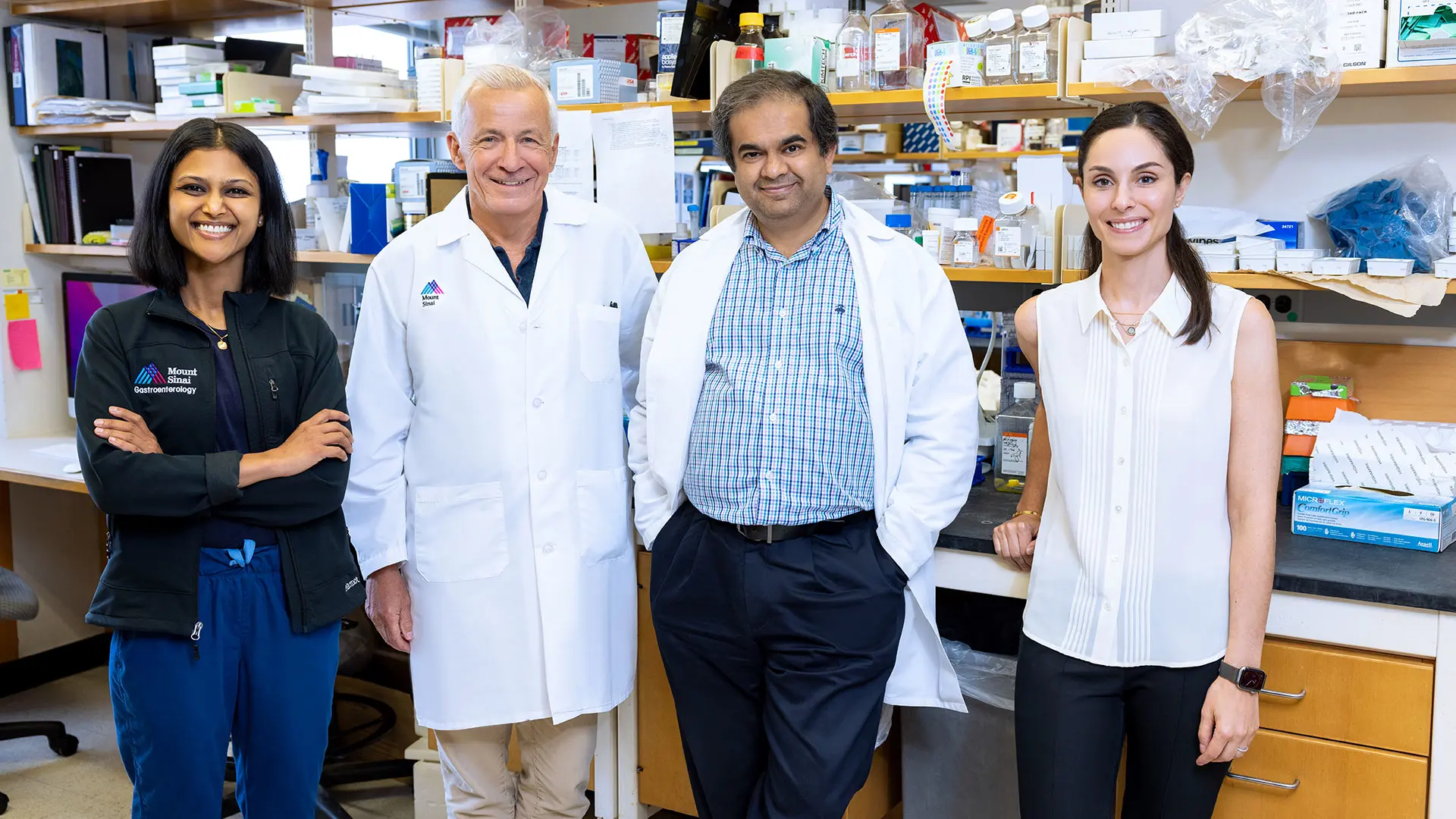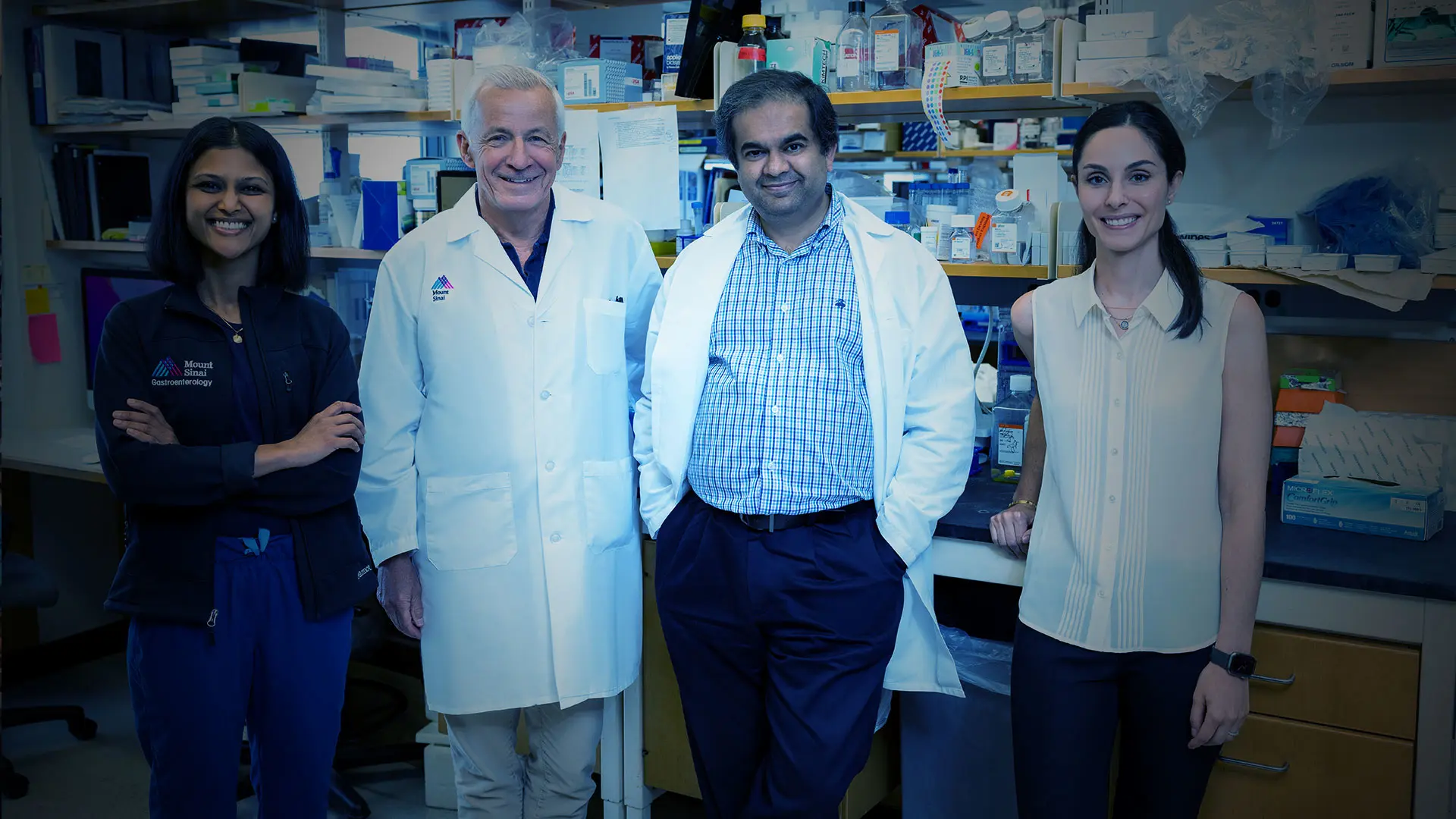Related Article
While a torrent of new drugs and therapeutic targets has brought relief to patients with inflammatory bowel disease (IBD), disease modification and cure remain critically needed but elusive endpoints.
Jean-Frederic Colombel, MD, Professor of Medicine (Gastroenterology) at the Icahn School of Medicine at Mount Sinai, believes those holy grails are achievable through the pursuit of a bold new target that has proven successful in other medical fields: disease prediction and prevention. In other words, by targeting and treating the early pathogenic events that promote IBD development, disease onset could be prevented or impeded, and a true opportunity to change its course revealed.
“We now have strong evidence that before the first symptoms of Crohn’s disease and ulcerative colitis ever occur, there’s a preclinical phase in which immune and inflammatory pathways are already altered,” says Dr. Colombel, who is Director of Mount Sinai's Susan and Leonard Feinstein Inflammatory Bowel Disease Clinical Center and its research counterpart, The Helmsley Inflammatory Bowel Disease Center. “Being able to identify in the blood or stool those dysregulated pathways through biomarkers, such as proteomics, metabolomics, gut microbiome, and antimicrobial antibodies, will lead to the development of prediction models and prevention strategies.”
Dr. Colombel has made measurable progress toward that goal through several new investigations. One study, in Gastroenterology, reported the presence of anti-granulocyte macrophage-stimulating factor autoantibodies (aGMAbs) in the sera of patients with Crohn’s disease up to six years before diagnosis, suggesting they could contribute to the pathophysiology of the disorder. “Our study demonstrated IgG2- and IgA-skewed isotopes of aGMAbs in patients with Crohn’s disease, indicating an origin within the intestinal mucosa,” explains Dr. Colombel. “We also found that aGMAbs not only predict the diagnosis of Crohn’s disease well in advance, but, in a subset of patients, they are associated with ileal involvement, disease severity, high relapse rates, and complications at disease onset.”
“We now have strong evidence that before the first symptoms of Crohn’s disease and ulcerative colitis ever occur, there’s a preclinical phase in which immune and inflammatory pathways are already altered.”
- Jean-Frederic Colombel, MD
To make new inroads into IBD prediction and prevention, Dr. Colombel’s team has reached beyond traditional epidemiological research platforms and pressed into service “multiomics,” an advanced methodology designed to leverage unbiased high-throughput data relevant to IBD. As outlined in a recent Mount Sinai study in Nature Reviews Gastroenterology and Hepatology, multiomics is uniquely equipped to find the critical links between the genome, microbiome, proteome, and exposome on the road to developing a model to characterize IBD risk factors and molecular pathways.
Nothing is more critical to IBD research, however, than Mount Sinai’s collaboration with a consortium of academic, industry, and government organizations. This partnership is drawing on a powerful resource: the U.S. Department of Defense’s (DOD) serum repository. Its millions of blood samples were taken from soldiers when they enlisted, and every two years of service thereafter, from 1998 through 2013 as part of the United States Defense Medical Surveillance System. “Some of these soldiers go on to develop IBD, and we’re able to link these samples to their medical records and track the development of markers preceding the clinical diagnosis,” Dr. Colombel says.
“If we’re going to find a way to prevent Crohn’s disease and ulcerative colitis, it will require the global GI community actively embracing this new paradigm of prediction and prevention,” declares Dr. Colombel. “We are making great progress, but so much work remains.”

The research team included, from left: Manasi Agrawal, MD, MS; Jean-Frederic Colombel, MD; Saurabh Mehandru, MD; Alexandra Livanos, MD, PhD
Featured Faculty and Division Leadership

Jean-Frederic Colombel, MD
Professor of Medicine (Gastroenterology)

Bruce E. Sands, MD, MS
Dr. Burrill B. Crohn Professor of Medicine; Chief, Dr. Henry D. Janowitz Division of Gastroenterology
